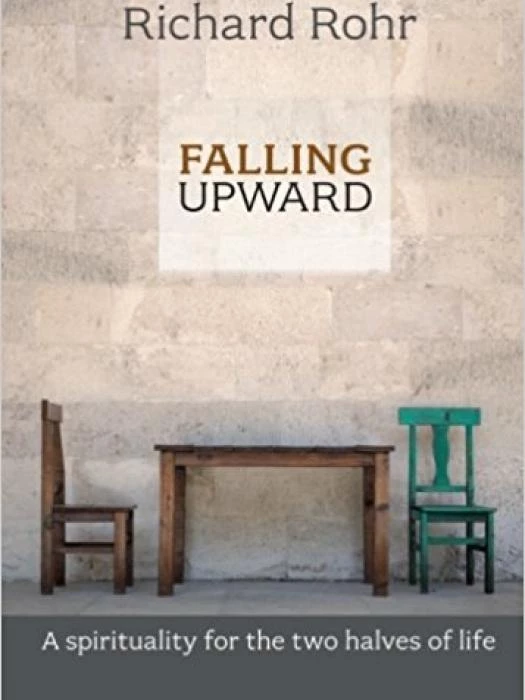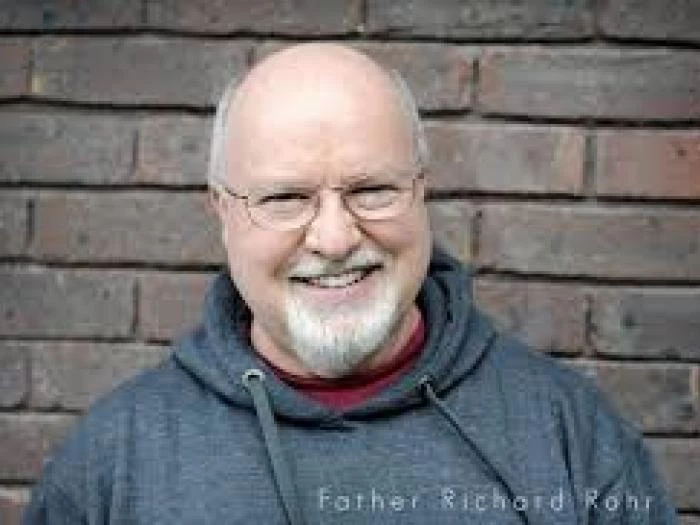Falling Upward
Of all the books we have read over the last five years, I believe that Richard Rohr's Falling Upward has created the most disagreement. Part-way through, he said, "...if this book is not making it very simple for you, I am doing it wrong...". So, he was doing it wrong thought some. Others however, found nuggets of insight and experiences that they could relate with, that were helpful or even inspirational.
The main thrust of the book was that the first half of life is about striving to establish our identities. The second half was about striving to find spiritual joy and the only way of doing that was by building on our failures, fallings and disappointments of the first half. This 'only way' contention was refuted by some who felt they had grown and experienced spiritual joy and peace whilst having a happy upbringing and experiencing no major traumas in their life so far. Nor did the 'first half and second half' idea sit well. Unlike a football match, they were certainly not equal halves. Some found spiritual growth early, some late and some not at all.
Most agreed that there was a lot of repetition and that the book could have been much shorter. There was a mixed view on his use of myths, great thinkers, heroic poems, metaphors and language. Some found this helpful and supportive to his arguments. Others found it confusing and distracting. Like some other authors we have discussed, he also sometimes made assertions sound like facts when they were only his opinion, such as, "All God wants is..."
As Father Richard is a Franciscan priest, some felt that he was promoting a Catholic agenda. However, others pointed out that he was critical of the Catholic church, preferring catholic to Roman and as he said, like Jesus, he was unhappy with aspects of his religion but never left it.
Those that made it to the second half of the book mentioned some of his points that they related with. One was that before we can properly forgive others, we need to forgive ourselves for being imperfect and falling. Going to court to prove our point might be an option in our more black and white younger days but as we mature, a better option is to try to influence events, work for change, quietly persuade, change our own attitudes, pray and forgive.
There was more agreement with his view that with spiritual maturity, there is less of a drive to prove our superiority in one way or another or to acquire goods and services better than the Joneses. Instead, there was a greater desire to give back to life some of the abundant blessings we had received. Rohr also claimed that spiritual maturity made us more likely to heed Jesus's advice to remove the plank from our own eye before tackling the splinter in someone else's eye.
The blind spot that we all have about ourselves gets smaller as our spiritual maturity recognises our failings. In fact, it gets exponentially smaller in the last years, months and days "as any hospice volunteer will tell you" or not at all if people stay in denial like Nazis at Nuremburg.
Some of us could relate to the notion that early stage religion is about preparing the stable for Jesus but that some of us never leave the stable and are preoccupied with whether ours is the best one! Also, that holier-than-thou people usually end up holier-than-no one. An example of this was provided by one of our number who had two people tearing a charity apart by both insisting that God had spoken to them – with completely conflicting messages!
Rohr presents an interesting picture of first half either/or versus second half both/and mindsets. I suspect we all know people, politicians and newspapers that 'compare, compete, conflict, conspire, condemn, cancel out any contrary evidence and then crucify with impunity – his seven C' s of delusion often sacralised as needed to 'make the world safe for democracy' or 'to save souls for heaven'. He contrasts that with what he sees as the more inclusive, Big Picture second half thinking in which, "one God creates all and loves all, both Dodgers and Yankees, blacks and whites, Palestinians, Jews, Americans and Afghanis." I suspect that we would all agree with him if he added that God also loves those that liked the book and those that didn't!
Peter Green
Get In Touch
Aylesbury Methodist Church & Centre
Buckingham Street
Aylesbury
Buckinghamshire
HP20 2NQ



